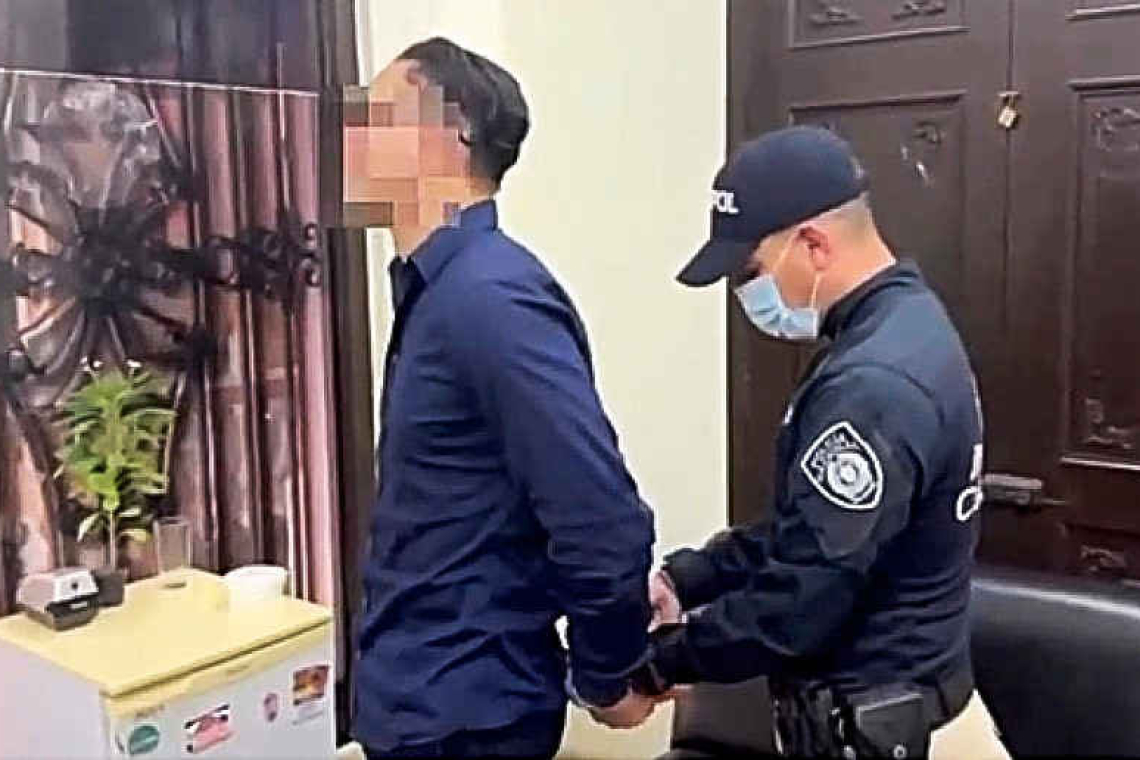Yu di Korsou Michael de Haseth being handcuffed by a Colombian police officer.
WILLEMSTAD--Michael Francis de Haseth, a member of a prominent family in Curaçao, has been arrested in Cartagena, Colombia, following the issuance of a red notice byINTERPOL at the request of the Dutch judiciary in The Hague. He is accused of leading a powerful international cocaine trafficking organisation.
De Haseth was captured during a high-impact, low-profile operation executed in coordination between Colombia’s National Police, INTERPOL’s National Central Bureau in Bogotá, and the Dutch National Police.
According to Colombian media, De Haseth played a decisive role in the logistical coordination of more than 100 kilogrammes of cocaine smuggled into the Netherlands in 2022, primarily via the port of Rotterdam.
Intelligence sources believe he oversaw every link in the supply chain – from acquisition in Colombia to concealment and reception in Europe – using encrypted communications and layered trafficking strategies to evade customs and law enforcement detection.
De Haseth is wanted by the District Court of The Hague on multiple charges, including the cultivation, preparation, sale, and transportation of prohibited substances. Dutch authorities view him as a key figure in a criminal infrastructure that connects South American drug production hubs with European narcotics markets.
The arrest forms part of Colombia’s national strategy against transnational crime and is seen as a demonstration of the effectiveness of international judicial cooperation. So far in 2025, Colombian authorities have carried out 111 arrests for extradition purposes, 50 of which involved red notices issued by INTERPOL.
Colombian police described De Haseth as a high-value target with ties to trafficking networks across the Colombian Caribbean, particularly in the departments of Atlántico, Bolívar, and Magdalena. Cartagena, where the arrest took place, has increasingly become a convergence point for white-collar crime and international drug operations.
The Colombian authorities had been tracking De Haseth’s movements in the city for weeks, after confirming his presence there. Despite maintaining a low profile and using inconspicuous documentation, his criminal record triggered alerts in Europe and led to the activation of the red notice. He was arrested without resistance in an upscale neighbourhood and transferred under strict security to a high-security detention facility.
General William René Salamanca, Director of the Colombian National Police, emphasised the broader impact of the operation: “Global security depends on coordinated action between countries that recognise that organised crime knows no borders. This arrest reinforces Colombia’s commitment to international treaties and the pursuit of transnational justice.”
De Haseth is currently in custody awaiting extradition proceedings, which will be handled by Colombia’s Office of the Attorney General in collaboration with the Ministries of Justice and Foreign Affairs. Upon extradition, he will face charges before the District Court in The Hague.
His arrest marks yet another blow to the far-reaching networks of international narcotrafficking that continue to use Colombia as a strategic logistical base. Colombian officials underline that no figure – regardless of financial power or international reach – is beyond the grasp of international law enforcement.







